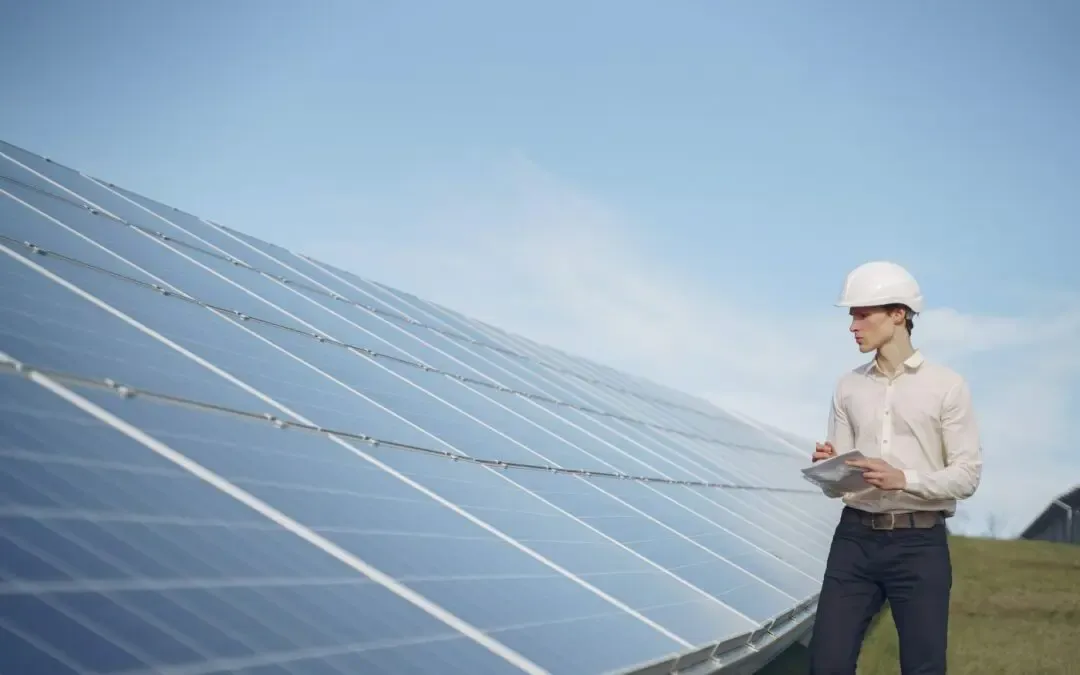Electrical safety is an important aspect to consider when you install a solar power plant. Being an electrical system solar PV is prone to many electrical hazards over time. These accidents can happen from the wear and tear of the system, due to external conditions, and sometimes due to human error. Whatever the case it is essential that you make sure that you have proper preventive measures in place to safeguard your investments from these kinds of accidents.
Common Electrical Hazards in a solar power plant
Solar PV systems work on a DC system. This means there are higher chances of fire and electrical risk due to the nature of the current flow in the system. Some of the common electrical hazards that happen in a solar power plant are mentioned below:
Faulty/ Poor Quality Wiring and Connections:
This can cause short circuits and probably a fire.
Inverter Hazards
Inverters convert DC current to AC current. Safety risks can occur due to inverter malfunction, sudden surges, excessive heating, or due to lack of proper maintenance.
Electrical Isolation and Grounding
Improper grounding and isolation of electrical systems can result in voltage imbalances, leakage currents, and electrical shock hazards.
DC Overcurrents: Solar PV systems are prone to
Overcurrents in DC circuits can lead to equipment damage, fires, and electrical hazards.
Should You Consider a Rapid Shut-Down System
What is a rapid shutdown system?
In a simplified manner, the integration of a rapid shutdown system ensures that no electrical and fire safety hazard is present due to the accumulation of charge in the whole system, whether it be modules, cables, or any other electrical components in the event of a shutdown or grid cut-off.
It de-energizes the whole system, i.e. drains out all the energy present in the component safely
Why de-energizing the system is important?
There are different scenarios where de-energizing becomes extremely useful.
In the event of a short circuit, the rapid shut down system can prevent the electrical arc formation, due to high voltage DC currents by bringing do Thus it can reduce the chances of fire and eliminate related risk factors. During a fire fighting situation, a Rapid Shut down system quickly de-energizes the solar system in less than a minute and keeps the firefighters safe.
Aren’t these safety features included in my inverter?
As for microinverters and power optimizer-based inverter setups, the feature is included in the design of these products. Inverter manufacturers like Enphase and SolarEdge, as they operate at a module level will handle these situations efficiently.
For string inverters, you will have to install module-level power electronics (MLPE) with the modules to efficiently implement the same.
Is it mandatory to have a rapid shutdown in my solar setup?
In the US the system is mandated in 37 states in accordance with NEC 2020 compliances. Even though the regulations are not equal across different countries in the world, you can consider setting up systems Rapid Shut Down systems to ensure the safety and longevity of your power plant.
In the undesired event of an accident, the Rapid Shut Down system can save you from fire hazards as well as your system from extensive damage, by isolating the damage to the root area.
Avail Now: Free Consultation!
Safety in mind? Talk with our solar experts to ideate customized and safe solar solutions for your requirements.
[button link=”https://usolar.in/contact/ “] Click Now ![/button]


